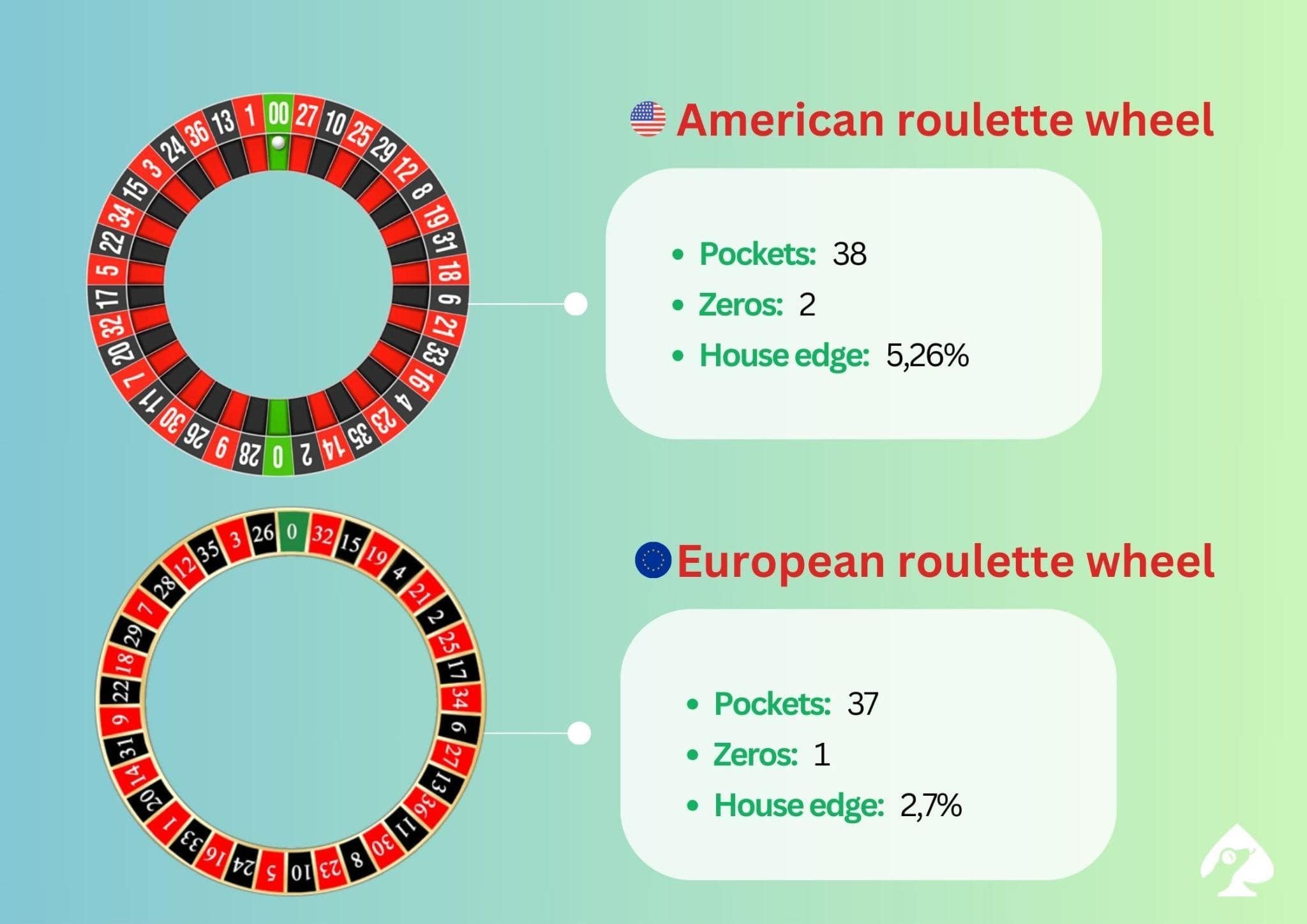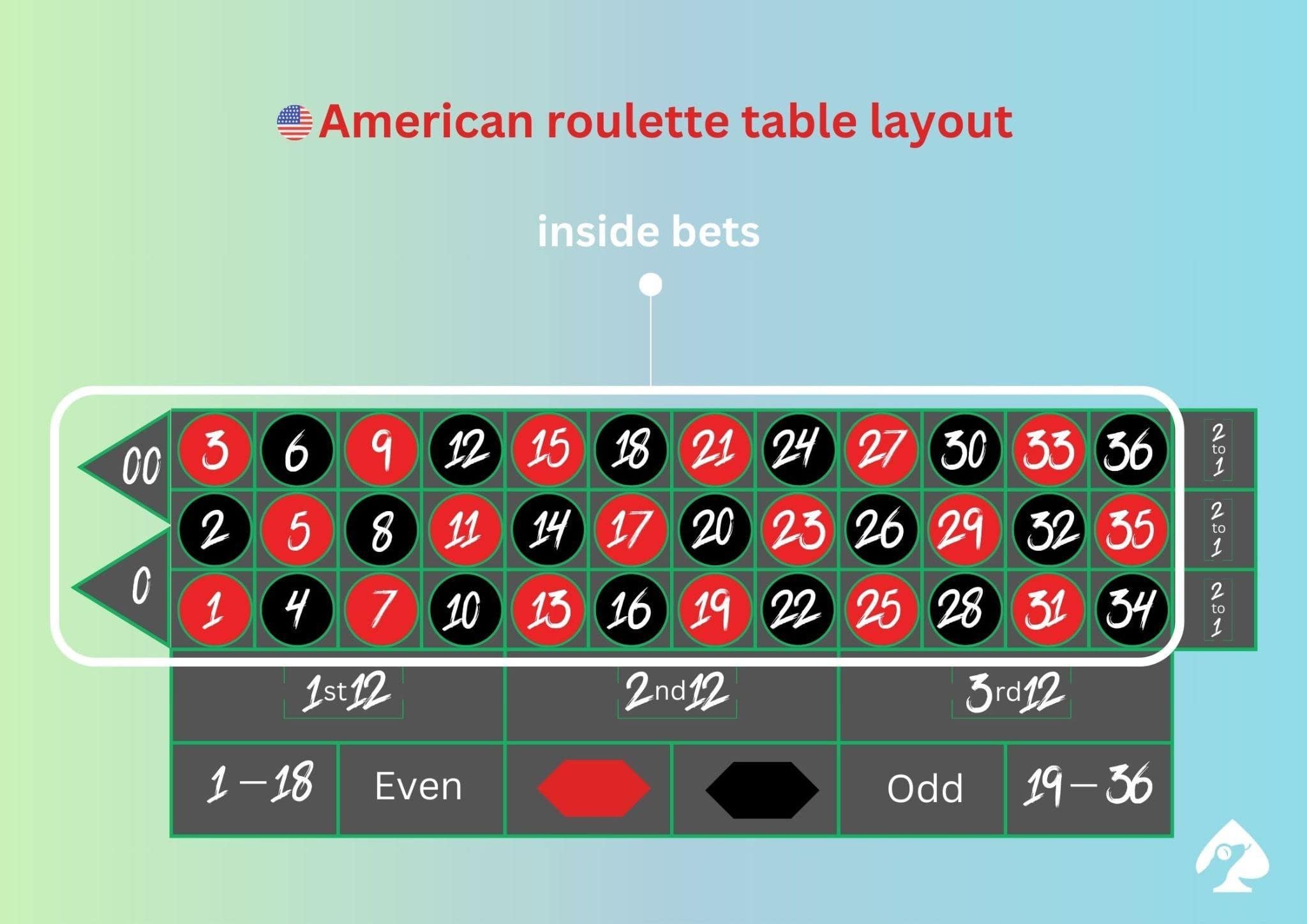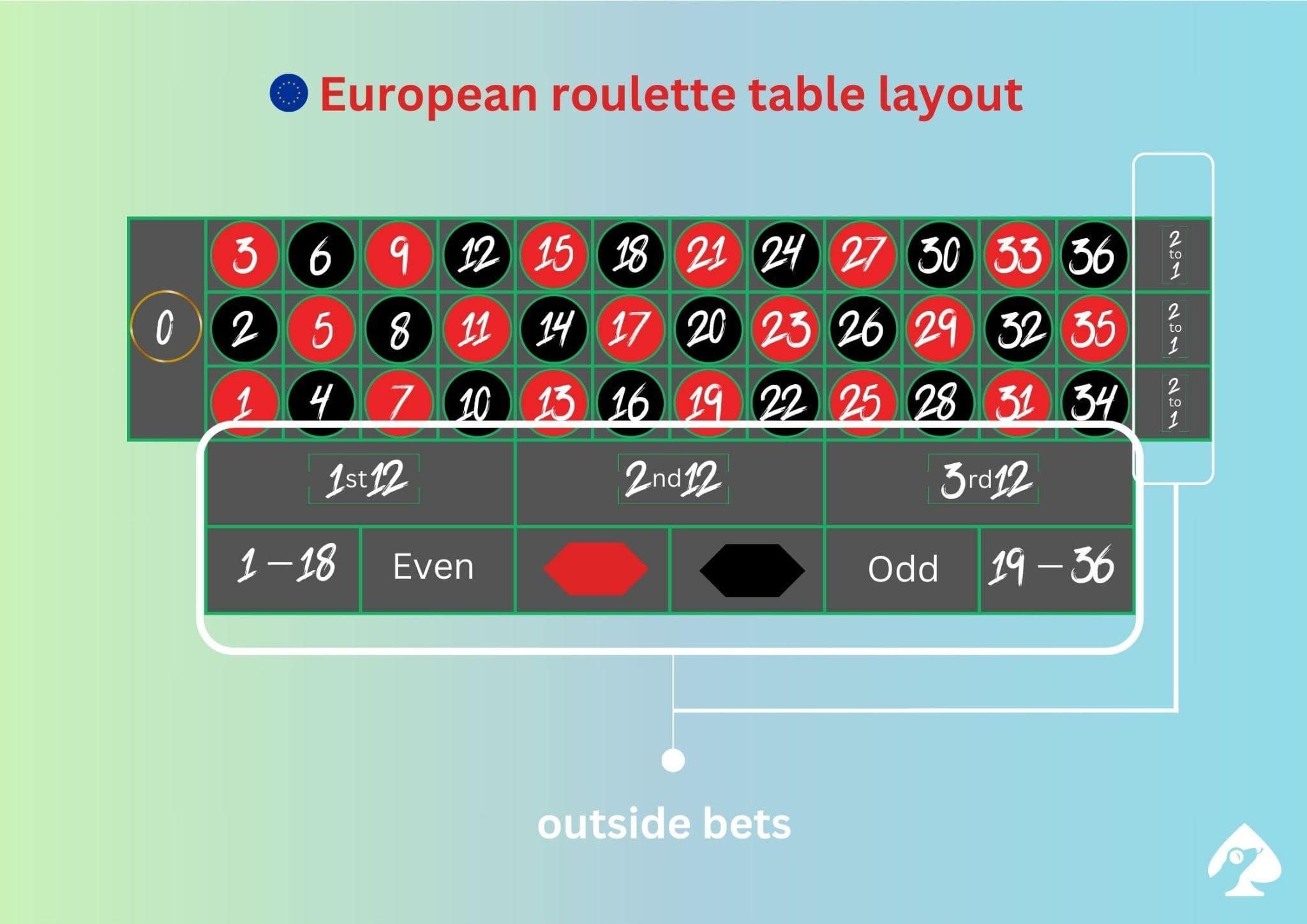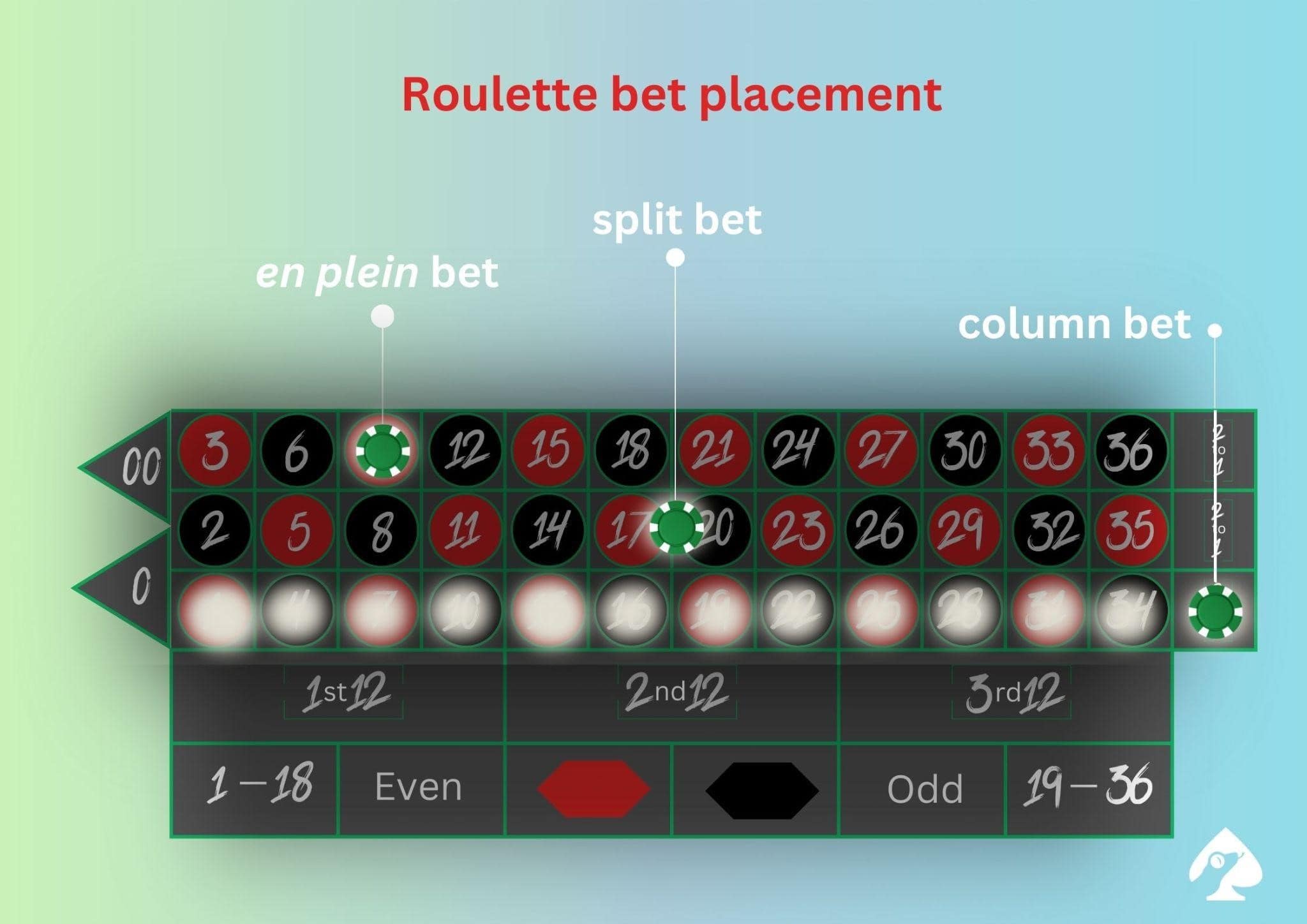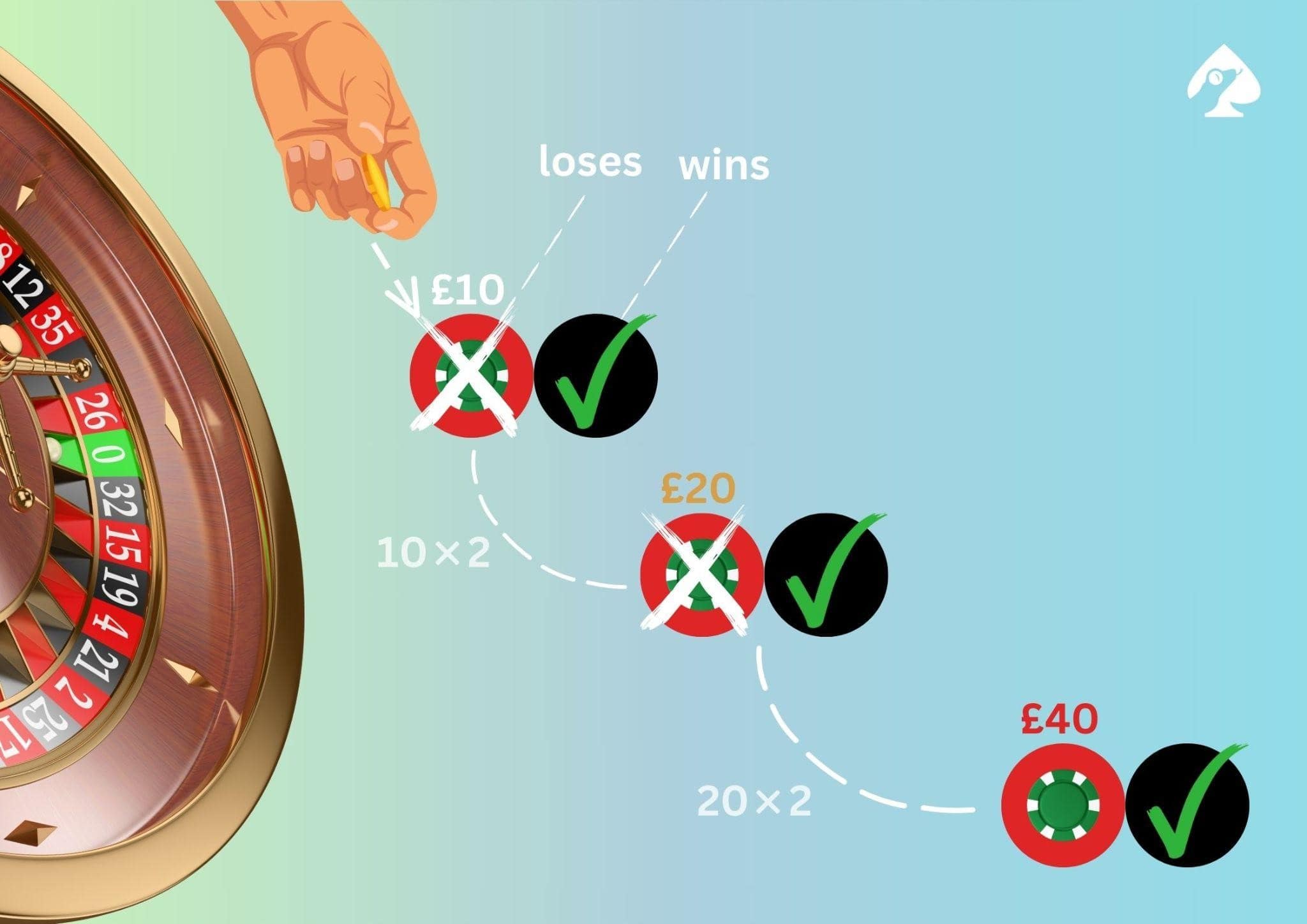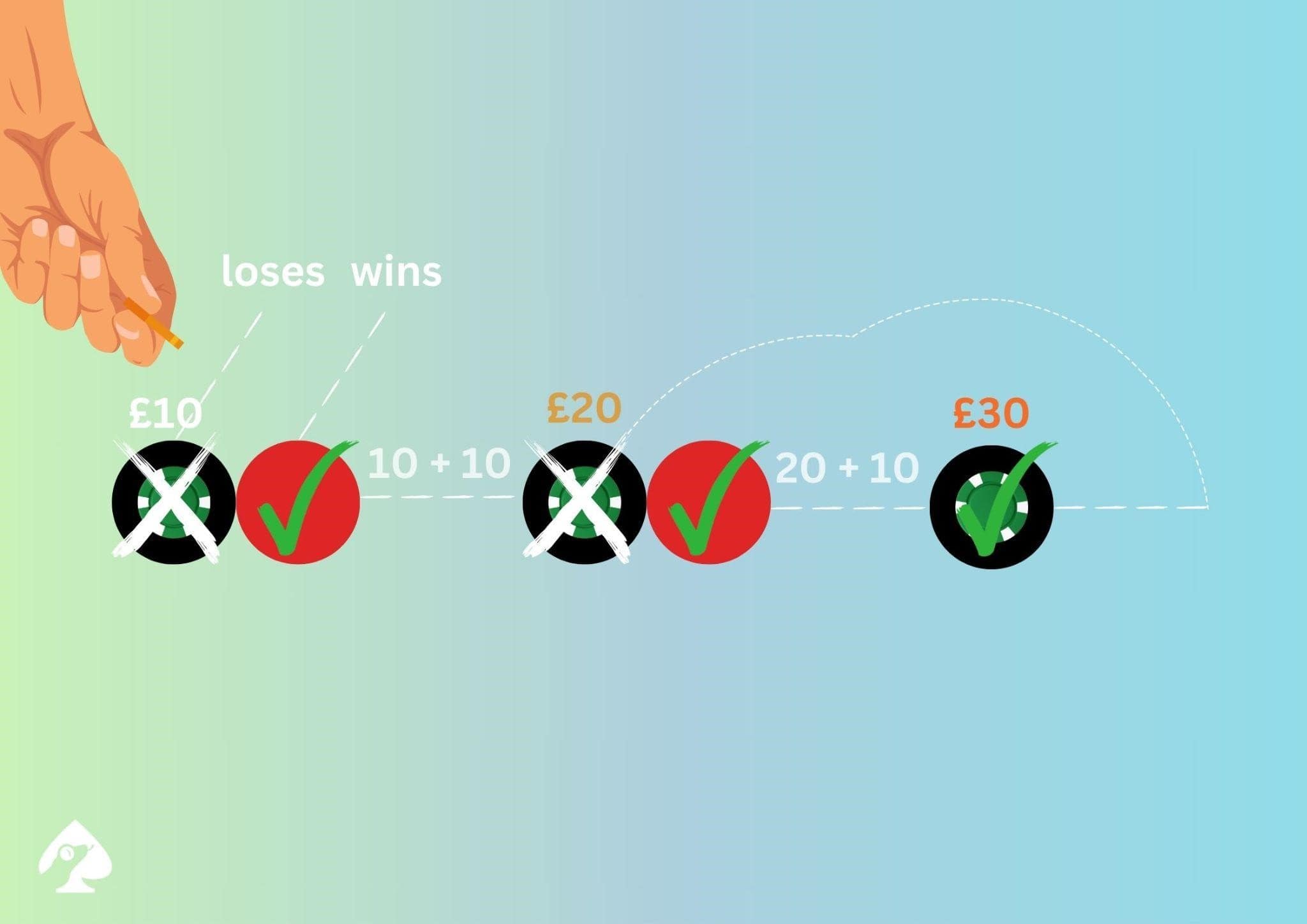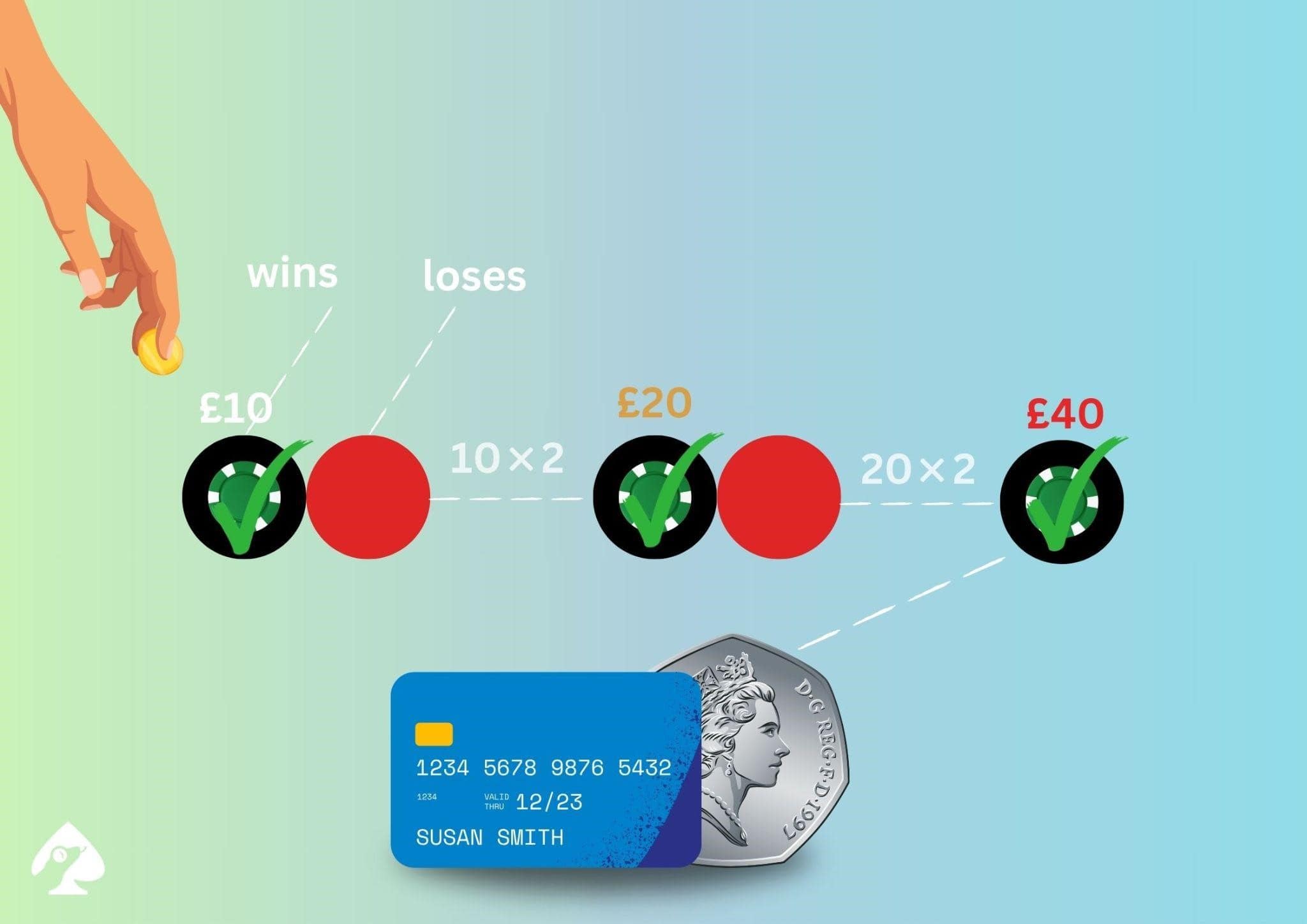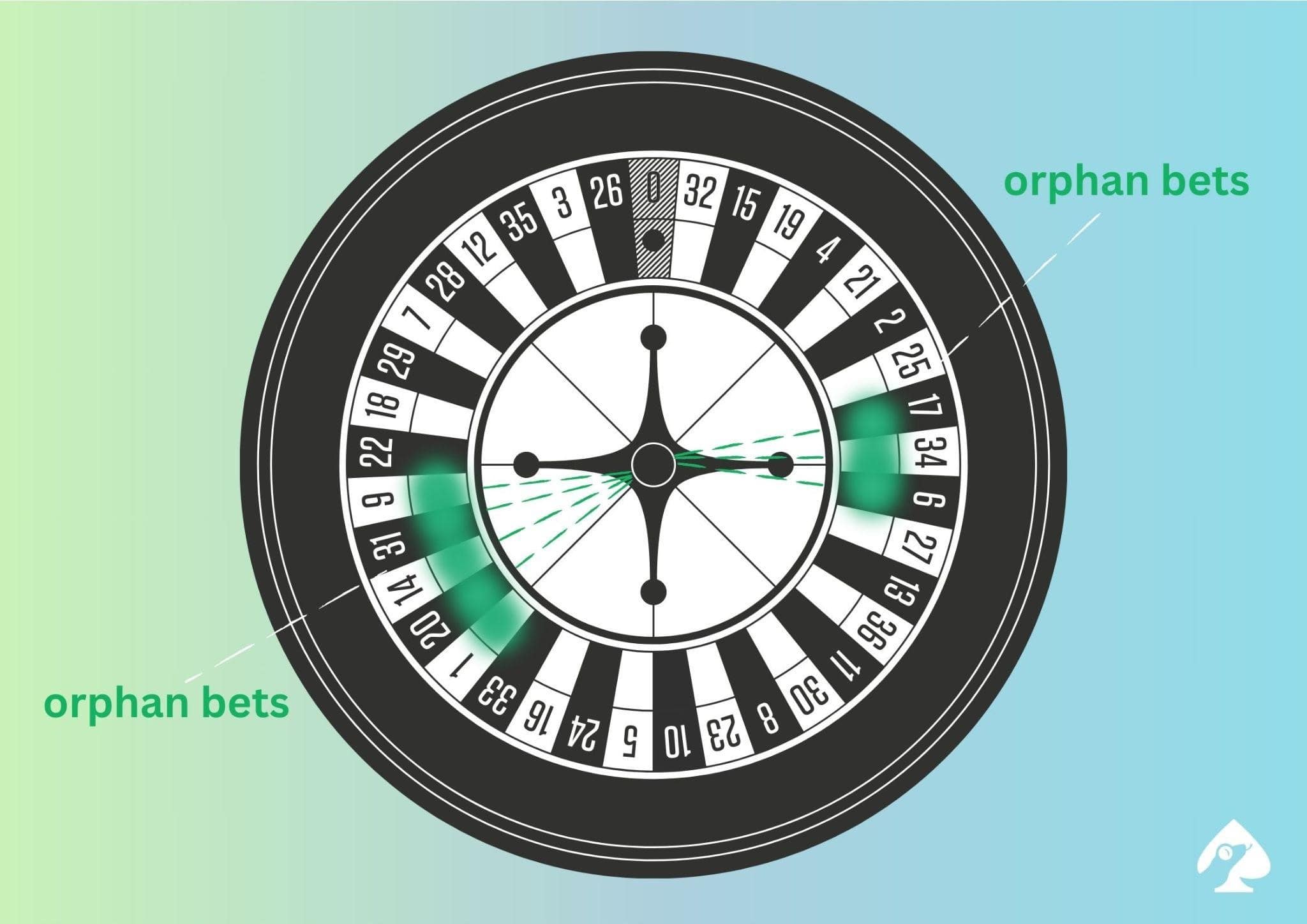Revealing 5 of the Top Roulette Strategies
If you visit a real or online casino, you can be assured that one of the most popular games will be roulette. With a rich heritage, roulette has been played for centuries and has become a real titan of the gambling industry.
There are many reasons why roulette has proved to be so popular. Not only can it provide multiple ways to win, but it is also an incredibly social game that allows players betting with different stakes to play together simultaneously.
One of the most fascinating features of roulette is that, over time, the game’s concept hasn’t overly changed. At its heart, it simply involves a wheel and a ball. But for a game so simple, so many bets can be placed on each spin.
With players always looking for an edge, over the years, many different roulette strategies have been developed and utilised.
Within this guide, we will have a look at five of the best roulette strategies and provide examples of how effectively they may be used. By the end, we hope you learn to apply one or all of these the next time you play.
Popular Roulette Terms
Before we explore the different strategies, familiarising yourself with the most commonly used terms and expressions that have become synonymous with roulette might be useful. As roulette was invented in France, don’t be alarmed if you come across a few French expressions.
- American Roulette: The traditional roulette wheel was invented to contain 36 separate numbers and one dedicated green zero space. European roulette still covers this tradition, but American roulette differs in that it contains two zero segments: ‘0’ and ‘00’.
- European Roulette: The version of roulette most commonly found in European and Asian casinos. In this version of the game, only one zero is used.
- Croupier: The casino staff member who puts the ball into the wheel and takes all bets. There is usually only one croupier on hand for every wheel.
- Inside Bets: Types of bets placed directly on individual numbers or the lines between numbers inside the grid on the table. These wagers are renowned for their larger payouts due to reduced chances of winning. Those who want substantial rewards from their bets tend to choose this type of bet.
- La Partage: The la partage rule of roulette applies to even-money outer bets. Players lose just half their stake when the ball falls on zero, not the whole sum. This rule, which is most often used in French roulette, lowers the house edge for certain bets, giving players a modest advantage.
- Outside Bets: Placed on options that encircle the number grid and encompass more substantial clusters of numbers (low 1–18 or high 19–36) and attributes such as the colour (e.g. red or black) and the type (even or odd). While outside wagers offer lower payouts than inside bets, they give participants a more consistent chance of winning with higher odds.
- Bet on the Layout: This is a bet where chips are placed on the numbers portion of the table, both inside and outside bets.
- Column Bet: As well as betting on individual numbers, you can also bet on a column of numbers. All 36 numbers are split into three even columns. If you bet on one of the three columns, your bet will cover 12 different numbers. If any of these numbers are hit, you will win at 2:1 odds.
- En Plein: This French term refers to betting on an individual number.
- Split: This is a placed bet which covers two numbers that sit next to one another on the roulette layout. It occurs when betting on the line separating the two numbers. If one of your numbers hits, this will pay out at odds of 17–1.
- Straight Up: Hitting a ‘Straight Up’ bet means hitting a number you have wagered on. If you hit on a number bet, it traditionally pays at odds of 35–1.
American roulette and European roulette differences
Roulette inside bets layout
Roulette outside bets layout
Roulette bets. Placement
Picking the Best Roulette Strategy
My life experience has taught me nothing happens by chance. Even the idea of the ball in a roulette game: it’s not chance it ends up in a certain place. It’s forces that are at play.
The above is a quote from the famous opera singer Andrea Bocelli, who beautifully describes how roulette can be about more than just luck. A chosen roulette strategy can prove that quote to be true, and an element of skill and judgment can be brought into a game.
You may find some of our highlighted roulette strategies fit your playing style perfectly, whilst others may be best left alone. Either way, let’s explore them in more detail.
1. Martingale Roulette Strategy
The only place to start our guide on the best roulette strategies is with the Martingale strategy. It’s likely one you may have heard of or even tried.
Having earned its name in the 18th century from former casino owner John Martingale (who would often encourage gamblers within his institution to double their losses), the strategy supposedly caught fire when British aristocrat Charles De Ville Wells won over a million French francs in a Monaco casino by reportedly using the system.
Reserved especially for the outside bets where only one of two outcomes can occur, the premise behind this roulette system is that every time you lose, you double your money until you win and have doubled your initial stake.
Let’s assume you want to try to double £10 by betting on red. If the result of that bet is black and your bet is a loser, you would then double your stake to £20. If the bet is lost again, you would double your stake to £40. The system would repeat until, eventually, the ball landed on a red number and paid you out as a winner.
Martingale roulette strategy scheme
Although the Martingale strategy is easy to understand, it requires a lot of patience and potentially deep pockets.
Despite the outcome of red and black being almost 50/50 (it isn’t exactly 50/50 due to the presence of the green zero), it isn’t uncommon for a colour to be repeatedly hit. Professional golfer Patrick Cantlay effectively sums it up:
You go to Vegas and you play roulette and the chances are 50/50 but skewed toward the house a little. It could hit red six times in a row, but that’s not abnormal. You flip a quarter, it would be weird if the quarter flipped tails, heads, tails, heads, tails, heads. Then you would think something trippy was going on.
If you lose six or seven spins in a row, the stakes will be high, and it could take you to a level of spending you are unwilling to match. This is something to be mindful of if you want to implement this tried and tested strategy.
- Pros
- It is very easy to understand
- The strategy only relies on two outcomes, which makes betting simple
- One of the most tried and tested roulette systems
- Cons
- The ability to stake big numbers can quickly come into play
- Some casinos outlaw the strategy
2. Fibonacci Roulette Strategy
Another option to try your hand with is the Fibonacci roulette strategy.
Named after the 13th-century mathematician Leonardo Fibonacci, the system revolves around a sequence where the betting stake is determined by the two numbers before it. However, it will always start at 1.
The Fibonacci system became entwined with roulette because by using the formula’s logic and progressions, you won’t be staking as much on losing hands as you would in the Martingale strategy. It can help you stay in control of your spending.
The start of the Fibonacci system looks like the one below.
Similarly to the Martingale strategy, the Fibonacci system only focuses on the outside bets where you can double your money.
Let’s demonstrate an example.
The first unit you would bet is £1. If you bet that on red and the ball landed on a black number, you would then advance to the next number in the sequence, which is £2. If that lost, you would move onto £3, and then onto £5.
By working up the sequence, you can see that the losses aren’t anywhere as steep as the Martingale strategy, where you would be doubling your stakes every time.
If your bet is a winner, the strategy determines that you would go back two steps to start the sequence again. So let’s say your £5 wager wins; your next stake would be £2. If you win right at the start of the sequence, you will continue betting your starting stake.
- Pros
- Similarly to the Martingale strategy, using the Fibonacci system is easy to understand and apply
- Maths is fairly basic and should allow you to follow an easy staking path
- The system is never-ending, so you can decide when to reset the sequence
- Cons
- Long losing runs can result in some big stakes being wagered
- Stepping back two steps when you win could result in some potential big wins not being hit
3. D’Alembert Roulette Strategy
One of the reasons why roulette has proved to be such a popular game over the centuries is that big wins can be made reasonably quickly. However, they can often require a large stake.
If placing large wagers makes you feel uncomfortable or you simply want to take your time at the table, the D’Alembert roulette strategy could be the best for you.
Once again, the D’Alembert strategy usually revolves around the outside bets and follows a progressive betting pattern.
Let’s say we want to double £10 by betting on black. If a red number is hit, we would then bet £20. If the bet loses again, we would bet £30 — we would only increase our bet by the first unit size.
If our £30 bet lands, this would mean that for our next bet, we would go back to £20. If that bet were to win, we would return to the sequence’s start and bet £10. If the new sequence starts off with a loser, you would increase your wagers by the initial unit stake.
D’Alembert roulette strategy scheme
- Pros
- Great for those who want to bet conservatively
- You can choose your starting stake, meaning you can stay in control of what you want to wager
- Good strategy for both those who are more experienced and beginners
- Cons
- Similar to both the Martindale and D’Alembert strategies, long losing runs are possible, and the stakes can quickly rise
- It can be harder to scoop large returns
4. Paroli Strategy (Reverse/Anti-Martingale strategy)
The three roulette strategies we have focused on above mostly revolve around taking action when you lose. The Paroli strategy bucks that trend and encourages you to act when you win instead.
It first came into existence thanks to the French mathematician Blaise Pascal, who allegedly was the inventor of the first roulette wheel in 1655. It is believed that the name entered the European lexicon with the mediation of the Neapolitan Italian from the Latin word ‘par’, which translates to ‘one that is equal’.
The strategy focuses on implementing a positive progression using one consistent stake, such as a £10 stake. If you lose, it never changes, but if you win, you double it.
Let’s say our first £10 bet wins. For the next spin, we would be required to bet £20. If that £20 bet wins, we would then bet £40.
An important part of any gambling is banking your wins, so the Paroli strategy advises that after three consecutive wins, you bank your winnings and then start the process again.
Stopping after three consecutive wins should ensure you can limit your spending and keep the game fun.
Paroli roulette strategy scheme
- Pros
- It is a strategy that allows you to grow your bankroll quickly
- It makes you keep your spending under control
- Larger bets are made from money you have already won
- Cons
- Only short-term profits can be won
- Despite doubling winnings, it isn’t a guaranteed roulette strategy to win
5. Orphan Bets
All four of our highlighted strategies focus on outside numbers, but Orphan bets involve the specific numbers inside the wheel and the game board itself.
Orphan bets have taken their name because the numbers bet on are far away from 0 and usually form the middle section of the game board.
Eight numbers are bet on 1, 6, 9, 14, 17, 20, 31 and 34. It’s completely up to you what you choose to stake, but you need to be mindful that tables online and in real casinos will have a limit that must be met.
Orphan bets roulette layout
- Pros
- It is a strategy that allows for large returns
- Betting on numbers can be an exciting way to play
- A proven strategy that is popular when it comes to betting on numbers
- Cons
- Less than a quarter of the wheel will be covered when placing orphan bets
- It can be an expensive way to play
References
- American Roulette. Roulette Online, https://www.rouletteonline.net/american-roulette/. Accessed March 14, 2024.
- Crane, Harry, Shaffer, Glenn, Rutgers University. Risk is random: The magic of the d’Alembert. The Game-Theoretic Probability and Finance Project, Working Paper #57, http://www.probabilityandfinance.com/articles/57.pdf, August 23, 2020. Accessed March 14, 2024.
- Leafe, David. The extraordinary story behind the Briton who broke the bank at Monte Carlo with his relentless casino winning streak. Daily Mail Online, The extraordinary story behind the Briton who broke the bank at Monte Carlo | Daily Mail Online, August 5, 2016. Accessed March 14, 2024.
- Roulette Quotes. Brainy Quote, https://www.brainyquote.com/. Accessed on the 14th March 2024
- Roulette Terms. Roulette Online, Roulette Terms — Glossary of Roulette Terminology with Explanations (rouletteonline.net). Accessed March 14, 2024.
- The History of Roulette. Crescent School Gaming and Bartending, https://crescent.edu/post/the-history-of-roulette, December 27, 2017. Accessed March 14, 2024.
